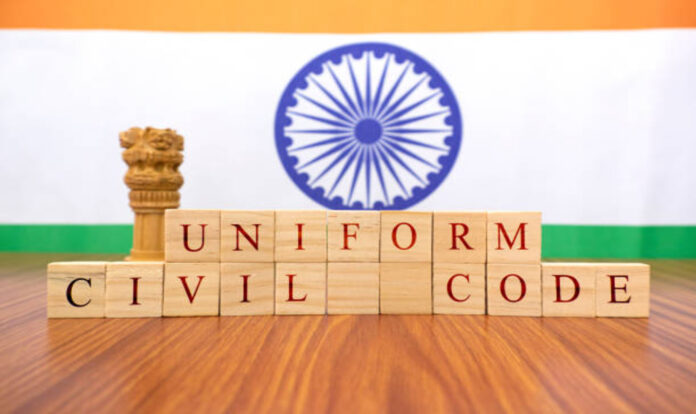In response to Prime Minister Narendra Modi’s recent endorsement of the nationwide implementation of the Uniform Civil Code (UCC), the All India Muslim Personal Law Board (AIMPLB) has conducted an emergency online meeting to discuss their opposition to the proposed law. The UCC aims to establish a set of uniform personal laws applicable to all citizens of India, irrespective of their religion, caste, or creed. During the meeting, which was attended by prominent AIMPLB members, including President Saifullah Rehmani, and Maulana Khalid Rasheed Farangi Mahali, Chairman of the Islamic Centre of India and a member of AIMPLB, the Muslim body unanimously agreed to strongly oppose the proposed law and present their views more forcefully to the Law Commission.
They also finalized the documents that will be submitted to the commission. The views expressed by Prime Minister Modi align with the affidavit previously filed by the Union Ministry of Law in the Supreme Court. The affidavit asserted that having citizens follow different property and matrimonial laws based on their religious beliefs undermines national unity.
In response to the Prime Minister’s endorsement of the UCC, Maulana Khalid Rashid Farangi Mahali stated, “AIMPLB will oppose the Uniform Civil Code vehemently. We are devising a strategy to counter the government’s proposal by presenting our views more forcefully to the Law Commission. Prominent Muslim leaders from across the country participated in the online meeting held on Tuesday.” He further remarked, “For years, politicians have raised the issue of the Uniform Civil Code shortly before elections. This time, it has resurfaced ahead of the 2024 elections.” Maulana Khalid emphasized that the UCC would not only affect Muslims but also Hindus, Sikhs, Christians, Jains, Jews, Parsis, and other minority groups in the country.
He argued that India is a diverse nation where languages change every 100 kilometers, making it impractical to impose a uniform set of rules on all communities. Each community has its unique way of worship, rituals, and marriage ceremonies. He asserted that the freedom to practice one’s own faith and way of life is enshrined in the Constitution and should be respected. As the debate surrounding the Uniform Civil Code intensifies, it remains to be seen how the Law Commission will respond to the arguments presented by the All India Muslim Personal Law Board and other stakeholders.


